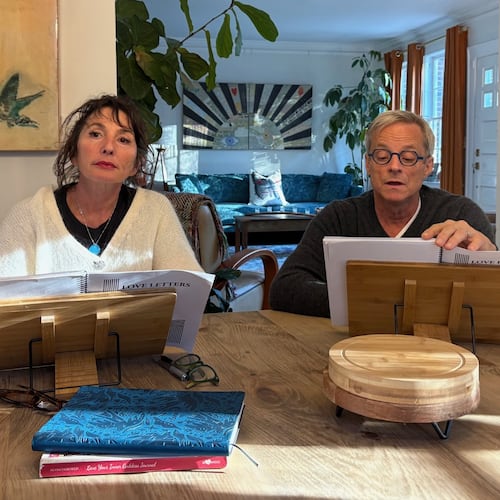To Floyd Taylor, the relocation of the AIDS Memorial Quilt to a new spot near the Center for Civil and Human Rights in downtown Atlanta means it’s finally home.
Over the years, Taylor, a community activist, has lost his lover and several friends to the devastating disease.
“It’s a perfect location,” said Taylor, who lives in Atlanta. “The messages portrayed in the quilt and in the Center for Civil and Human Rights graphically show the the struggles and deaths that have occurred as people continue to fight for equality.”
The 54-ton quilt has been stored in metro Atlanta since 2001, most recently in office and warehouse space on 14th Street in Midtown with panels often sent out for display.
“The quilt has a powerful story to tell – it is the story of life in the age of AIDS and beyond,” said Julie Road, president and CEO of the NAMES Project Foundation, the caretaker and steward of the quilt. “The lives that are remembered in this quilt and the people who created the panels had lives well beyond this age of AIDS. The stories we tell are both intimate and personal expressions of love and life.”
She said the new location will expose thousands more each year to the quilt.
“It’s important to be in the shadow of the Center for Civil and Human Rights and to be in a thriving downtown arts and cultural district,” Rhoad said.
A portion of the quilt will move to a larger space at 117 Luckie St. in June. The bulk of the quilt, though, will be housed elsewhere. It is being moved to a 4,200-square-foot warehouse in Tucker.
On Luckie Street, there will be free panel-making workshops; HIV prevention, education and artistic programs; and displays to share stories behind the quilt. The new location also will be the home to the AIDS Quilt Touch that will allow people to explore the quilt on a tabletop digital browser and online via two interactive kiosks.
It's presence in that downtown corridor fits in nicely with the recent installation of a sculpture by Matthew Terrell, an artist and HIV activist, that rests on a hillside at the civil rights center featuring marquee-style digits that is updated weekly to show the number of HIV-positive people living in metro Atlanta.
The quilt had its beginnings the late 1980s when a group of strangers met in a San Francisco storefront to create a memorial for those who had died of the growing AIDS epidemic. It has 48,000 panels with 97,000 names.
About the Author
Keep Reading
The Latest
Featured




